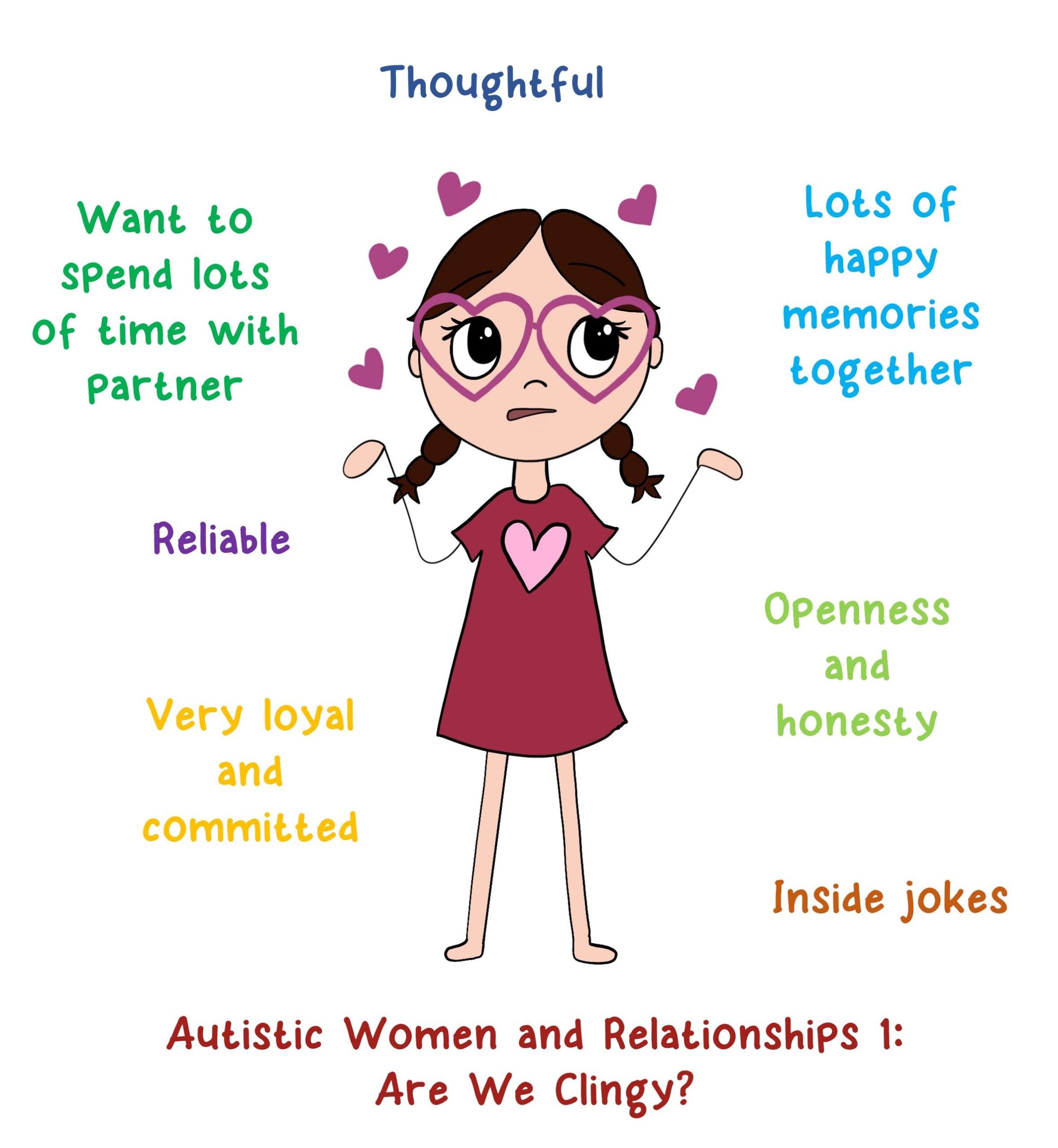(Please note I use ‘women’ and ‘men’ in my writing to refer to anyone who identifies in this way).
Historically, women have been underrepresented in autism research, and so studies examining the intricacies of social relationships formed by autistic individuals have been skewed towards a more classicaly ‘male’ presentation of autism. However, more recent studies have highlighted the different presentations of autism and how autistic adult both women form relationships that differ from those of autistic men, as well as from neurotypical women. I want to bring light to a few of the different aspects of the relationships we form that may help you to understand yourself, or partner – so this will hopefully be one of multiple posts reflecting on my experience!
For me, one of the most prominent features of both my friendships and romantic relationships is ‘clinginess’. I form very intense bonds with people, and when I was younger always wanted the new friend I made to become my ‘best friend’. I’d struggle with jealousy if they had other friends, and sometimes rushed into friendships, or put myself in a vulnerable position in order to, in my eyes, make sure they liked me and remained my friend (e.g. doing their homework). Similarly, whenever I date, I’m not interested in short term things. I dream of having a soulmate-type partner, and want whoever I date to be the person I one day marry. I want my partner to be my equal, and to spend a lot of time with them. Even though I want us to have our own interests, I want us to share things, have inside jokes, and want to be their ‘number one’ as much as I would treat them like my own.
This is a very common experience for autistic women. Individuals with ASD develop specific and special interests, and in the same way, can become obsessive with people. It has commonly been noted in research that autistic girls tend to have closer friendships than autistic boys, and in general, have fewer friendships than their neurotypical peers. They seem to lack wider social networks and form intense relationships with individual best friends.
Is there anything wrong with this? Well, not really! I think as long as you are looking after yourself, and your wellbeing, and forming healthy relationships, it’s okay to be a bit ‘clingy’. Lots of people, be they autistic or not, seek intense, best friends, and the same goes for partners! There are also lots of benefits of being a more clingy friend or partner, including:
– Being extremely loyal and committed – trustworthy
– Being a reliable person – a partner or friend you can count on
– Having a lot of care for your friend/partner
– Being interested in spending lots of time together
– Helping them out with the things they need to do, and hopefully them doing the same in return
– Sharing things with them
– Lots of exciting memories together!
– Lots of inside jokes
– Openness and honesty
(However, as I briefly touched upon, it is vital that both people within the friendship or relationship maintain a level of independence from eachother, and look after themselves – avoiding a one sided relationship in which one individual may become vulnerable).
Papers used: Taylor, Isabelle, “Women with High Functioning ASD: Relationships and Sexual Health” (2020). CMC Senior Theses. 2553. Sedgewick, F., Crane, L., Hill, V., & Pellicano, E. (2019). Friends and Lovers: The Relationships of Autistic and Neurotypical Women. Autism in Adulthood, 1(2), 112–123.

Leave a Reply